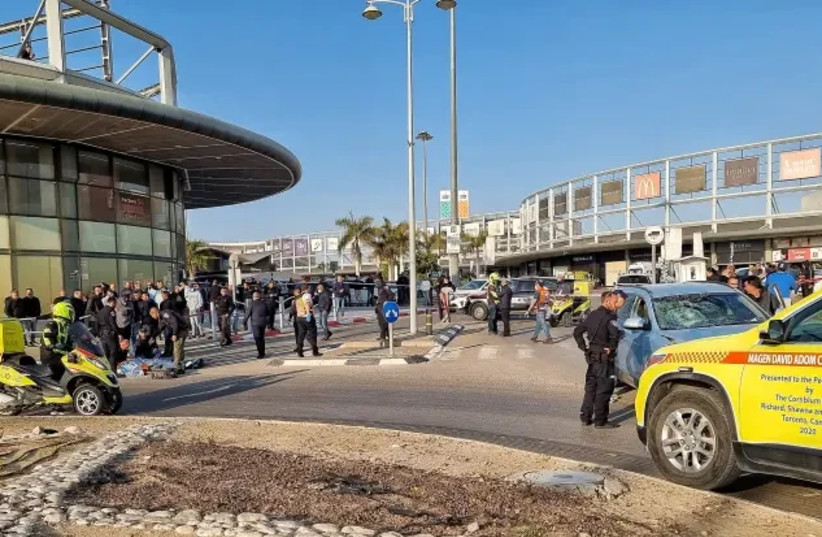Arab-Israeli riots in the country’s mixed cities during last year’s Operation Guardian of the Walls set off alarm bells.
They continued to sound throughout the year as violent crime pounded Arab cities, with dozens of people killed by thugs who had easy access to illegal weapons.
When an Israeli Bedouin man from Hura, a teacher who identified with Islamic State, went on a murderous rampage in Beersheba last week, the bells tolled even louder. And they went off again on Sunday night after the horrific terrorist attack in Hadera carried out by two Arab Israelis from Umm el-Fahm, who were also acting under the influence of ISIS.
It’s about time people hear those alarm bells and take heed – Israel has a problem.
Israel has a problem with a radicalized fringe of its Arab population. Granted, it is only a fringe, as the vast majority of the country’s Arab citizens are law-abiding individuals who just want to get on with their lives and live in dignity and prosperity. The harsh condemnations of the last two terrorist attacks that have come from Arab-Israeli leaders, such as Ra’am head Mansour Abbas, are to be welcomed, appreciated and encouraged.

But there is definitely a radicalized fringe among Arab Israelis who have been poisoned by a destructive, murderous Islamist ideology, and it presents an enormous problem, one that Israel needs to better address.
That two major attacks in a week were perpetrated by Arab Israelis indicates that there are undercurrents and trends in that community that are not attracting enough intelligence and security attention.
While lone-wolf attackers like the one in Beersheba would be difficult to smoke out beforehand – though the perpetrator should have been under better surveillance because of his past prison record and identification with ISIS – the two terrorists who carried out Sunday’s attack in Hadera were apparently aided and abetted by like-minded fanatics.
A lone-wolf terrorist equipped with a car to ram and a knife to stab need not leave a paper or social media trail. Two terrorists equipped with firearms and a thousand rounds of ammunition, and who were photographed before their rampage, do leave such a trail – and it is one that needs to be more carefully followed.
Seven of the nine terrorist attacks carried out in the country since March 2 have been perpetrated by either Israeli or east Jerusalem Arabs who carry blue ID cards. Moreover, the deadliest attack before the Beersheba carnage, the truck ramming that killed four soldiers in Jerusalem’s East Talpiot neighborhood in 2017, was also carried out by an east Jerusalem Arab with Israeli identification papers.
This all points to a very worrying trend, and one that presents enormous challenges for the security services, since certain counter-terrorism measures used beyond the Green Line are more difficult to enforce against Israeli citizens.
Take the NSO Pegasus spyware, for instance. The very whiff earlier this year that it might have been used against Israeli citizens caused a significant outcry, whereas the public looks with a much more forgiving eye when that spyware is restricted to use against suspected terrorists in the West Bank.
Similarly, Israel needs to go after illegal arms in the Arab cities with the same determination – and even perhaps using the same methods – as the IDF goes after illicit arms in the West Bank. Guns in Umm el-Fahm can be just as deadly as those in Jenin.
It’s all a question of calibrating the right balance.
Israel has long been a laboratory for balancing civil liberties on the one hand with the need to protect the lives of its citizens on the other.
Granted, civil liberties and privacy must be guarded jealously, but protecting lives is at least as important. At times, there may be a need to make some sacrifices in personal liberties to track down terrorists and those connected to organizations such as ISIS – as long as the required checks and balances are put in place to ensure that this prerogative is not abused.
Keeping the current uptick in terrorist attacks from turning into a full-blown wave of terror propelled by Arab Israelis may be one of those times.
